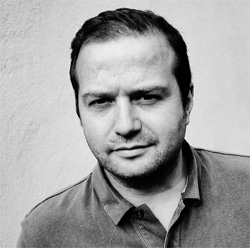Digital Media Cafe Blog: Featuring The Indian Super League, Citizen Journalism and QPR – David Granger
October 24, 2014
Social and Soccer: The Indian Super League
There is another major drive to use social media to keep fans interested and, as importantly, to bring new ones to watch and take part.
The Indian Super League now has private funding and a boost of foreign players to help promote soccer in the country. And the other big new signing is social media.
Having seen the part social has played in Major League Soccer in the US, and just how influential the medium can be when it was used to great effect by organizers, sponsors and team during the World Cup in Brazil, the Indian authorities are hoping some of that will rub off on the new season.
With good reason, the channel of choice is Twitter. And, as well as starting the #LetsFootball hashtag campaign, the league wants supports to tweet support for their team during games using the tag to create social media ‘team battles’ throughout each match.
Things will be helped by the influx of foreign stars such as Alessandro Del Piero, Robert Pires and David James – although their popularity may eclipse that of their team – one example cited claims there was 3,435 tweets around ‘Alessandro Del Piero’ but only 2,825 around his team ‘#DelhiDynamos’ in the 24 hours leading up to their opening match.
But, like Formula E and football in the US, the ISL is embracing social media. And its tactics will encourage the conversation goes on way after the final whistle.
The Modern Fanzine: Pundit Arena
The citizen journalism which now pervades our news and sports channels arguably started out with club fanzines and then blogs.
But an Irish start-up is taking things even further by launching a sports website where all the content is contributed by fans – but the big difference and the clever part is that they are paid for their copy.
Pundit Arena offers commentary on 17 sports, with articles written by 200 pundits or contributors as well as a team of four staff writers. Its main topic is football with rugby and boxing next in line in terms of popularity.
The company came into being in October 2013 when its co-founders Mr Barrett and Ross O’Dwyer met while participating in the Ignite Accelerator programme.
Since then using SEO, social media and targeted advertising the site has grown – in no small part to the subject matter and contributors who must be articulate, passionate and legal and get paid once their contribution get 5,000 hits.
So, is this the future of online sports journalism or will the model be difficult to repeat?
Public Spat: QPR and Twitter
Queens Park Rangers found themselves in the media for the wrong reasons this week.
As well as defender Rio Ferdinard being charged with misconduct by the FA for comments he recently made on social media, the club’s owner Tony Fernandes took to the same social channel to back manager Harry Redknapp’s comments saying professional players must be fit.
Interestingly Fernades’ tweet was deleted and this week he issued a statement on the club website regretting that the issue had been played out in public, saying he was disappointed in the two parties involved and confirmed the issue was being dealt with internally.
Once again social media is giving players and owners access to the public, but without that PR filter. Let’s hope they’ve learned a lesson…
Having spent eight seasons in Formula One managing the digital channels for world champions Red Bull Racing, David Granger now runs Fact 51, a social and digital content agency.



